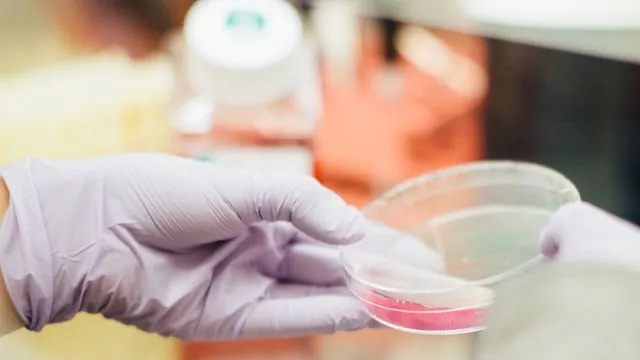
Revolutionary Bacterial Protein Paves the Way for Sustainable Organoid Growth
2025-01-03
Author: Nur
In a groundbreaking advancement in biomedical research, scientists from the Organoid group have unveiled a transformative method for growing organoids—a feat traditionally reliant on expensive and animal-derived components. Published in the prestigious PNAS on December 30, this study highlights the use of *Invasin*, a protein from the bacteria *Yersinia*, as a sustainable, cost-effective, and cruelty-free alternative to commonly used materials.
Organoids, miniature organs cultivated in the lab, are crucial for studying organ functions, disease mechanisms, and drug testing. These small structures require an optimal environment that mimics the body's extracellular matrix, which supports cellular integrity and facilitates growth. Traditionally, researchers have relied on extracts like Matrigel and Basement Membrane Extract (BME) that are sourced from mouse tumors, leading to concerns over genetic consistency and ethical implications while becoming prohibitively expensive.
A Bacterial Breakthrough
In their pursuit for alternatives, the researchers strategically turned towards *Invasin*, a clever protein utilized by *Yersinia* bacteria to adhere to human intestinal cells. Joost Wijnakker, the lead author of the study, remarked, “We started to think out of the box and try something completely different.” By isolating a potent segment of the *Invasin* protein, the team aimed to replicate the functionality of the traditional matrices.
When they applied the refined *Invasin* protein to culture dishes, the results were extraordinary. The researchers successfully maintained organoids derived from human intestinal and airway cells, murine intestinal cells, and even snake venom gland cells! This demonstrates the remarkable versatility of *Invasin*, supporting the growth of various organ types that accurately mimic their real counterparts.
Revolutionizing Organoid Culture: Why 2D is the New Trend
One of the study’s most significant revelations is that, unlike the conventional 3D cultivation, which can complicate research—much like trying to extract a blueberry from jelly—*Invasin* enables organoids to be grown as flat, easily accessible 2D sheets. This innovation dramatically simplifies drug testing and analysis, allowing researchers to rapidly examine multiple conditions in a practical layout, all while preserving the cellular architecture essential for realistic organ function and interaction studies.
Moreover, this 2D growth method maintains the natural orientation of cells, crucial for understanding cellular interactions. For instance, intestinal cells possess distinct sides: one engaged with nutrients and the other linked to the surrounding tissues. This novel approach ensures that both sides remain accessible for experimental observations.
A Glimpse into the Future
The implications of the researchers' findings are profound. Wijnakker emphasizes that *Invasin* could mark a significant shift in organoid research, providing a fully defined, economical, and animal-free alternative to Matrigel/BME. This innovation not only has the potential to streamline research processes but also accelerates drug development efforts by creating efficient models for testing.
As the scientific community embraces this bacterial breakthrough, it showcases the immense importance of understanding microorganisms, which can lead to groundbreaking shifts in medical science and beyond. The future of organoid research is now brighter than ever, thanks to the astonishing power of a single bacterial protein—the implications could spell a new era in how we study human health and diseases.
Stay tuned for more updates on how *Invasin* is reshaping the landscape of biomedical research!


 Brasil (PT)
Brasil (PT)
 Canada (EN)
Canada (EN)
 Chile (ES)
Chile (ES)
 Česko (CS)
Česko (CS)
 대한민국 (KO)
대한민국 (KO)
 España (ES)
España (ES)
 France (FR)
France (FR)
 Hong Kong (EN)
Hong Kong (EN)
 Italia (IT)
Italia (IT)
 日本 (JA)
日本 (JA)
 Magyarország (HU)
Magyarország (HU)
 Norge (NO)
Norge (NO)
 Polska (PL)
Polska (PL)
 Schweiz (DE)
Schweiz (DE)
 Singapore (EN)
Singapore (EN)
 Sverige (SV)
Sverige (SV)
 Suomi (FI)
Suomi (FI)
 Türkiye (TR)
Türkiye (TR)
 الإمارات العربية المتحدة (AR)
الإمارات العربية المتحدة (AR)